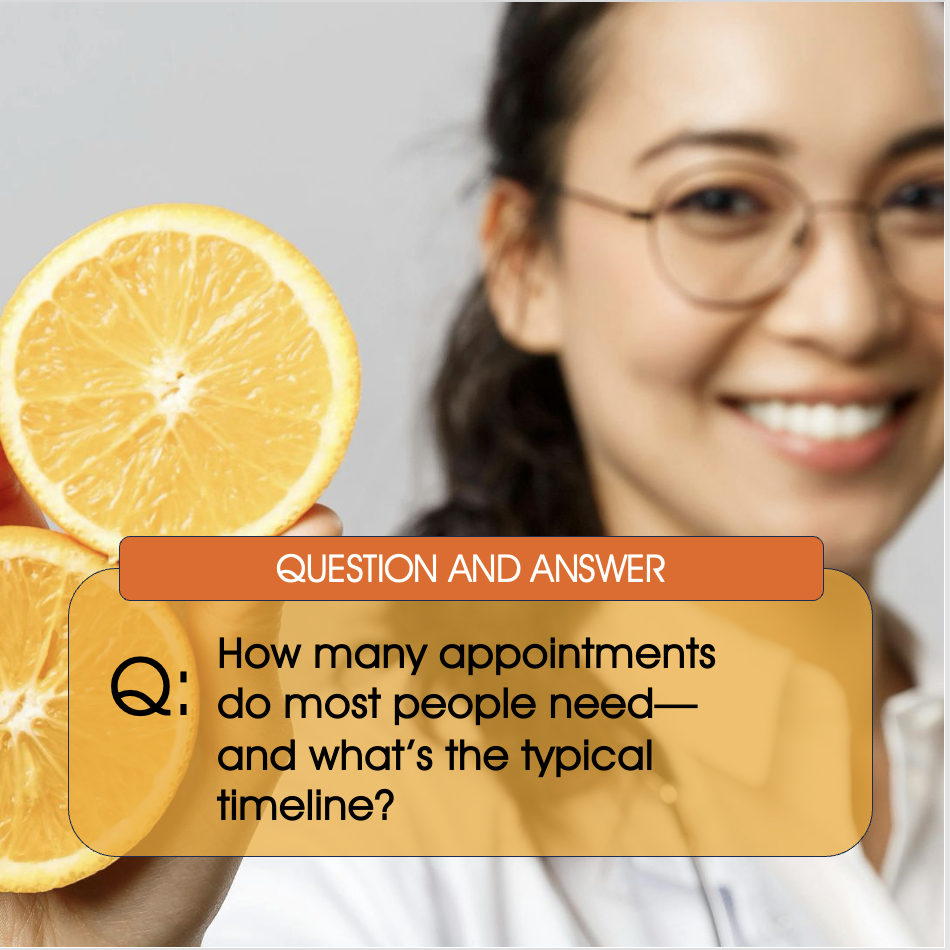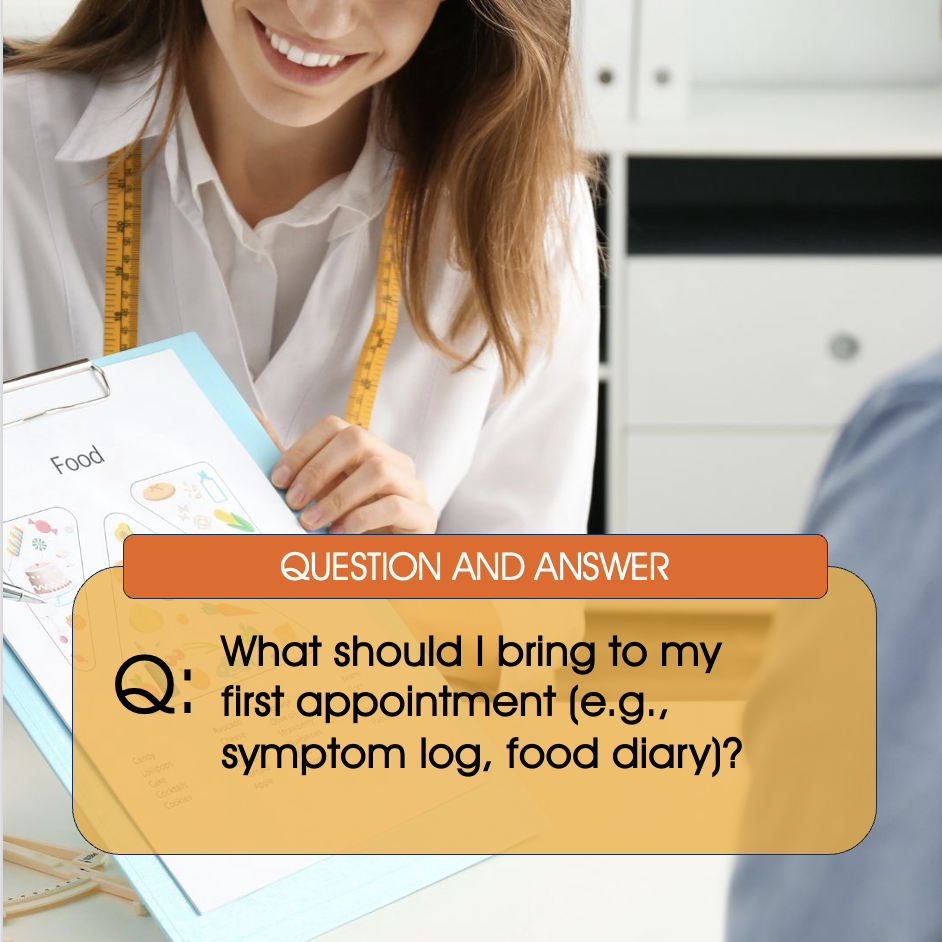Thinking about seeing a dietitian for IBS? Read this first!
If you’ve ever thought about seeing a dietitian for your IBS but felt unsure about what to expect, you’re not alone. Many people feel nervous about their first appointment or don’t know how to choose the right expert. And when you're continuously being sold a magical IBS cure on social media, you may have doubts as to HOW a dietitian can actually help you get relief from your symptoms.
In this week's blog, we asked an accredited dietitian - Briony Blake - all the questions you want answers to. Whether you're curious, committed, or still on the fence, we hope this blog gives you clarity, confidence, and practical tips to take the next step. Keep reading to the bottom of the page to get your free downloadable checklist ⬇️
Q: What happens during a first appointment with a dietitian who specialises in IBS?
Think of your first appointment as a "getting to know you and your gut" session. Your dietitian will take a thorough history of your digestion, from top to tail, record a baseline for all the symptoms you experience and get a good understanding of your eating patterns. We also like to know a bit about you include your work schedule, your stress levels, how you sleep and what you do to unwind, the clearer picture we have, the more helpful we can be!
The next part of the session might include goal setting because it's important to have a clear idea of where we are headed as we start on this journey.
And then comes the plan, which is highly individualised and takes into consideration all your needs.
Q: How many appointments do most people need—and what’s the typical timeline?
This can vary depending on the severity and length of time someone's symptoms have been occurring. For best effect, an appointment every 2-4 weeks for about 3 months should do the trick.
Q: Do I need a GP referral to see a dietitian?
Nope! Most dietitians accept private clients. That being said, depending on your GP, and the long term effects of your symptoms you might be eligible for an Enhanced Primary Care Plan which entitles you to a Medicare rebate of $60.35 for up to 5x allied health appointments per calendar year.
**Note, you cannot use both private health insurance AND the medicare rebate on an appointment.
Q: What should I bring to my first appointment (e.g., symptom log, food diary)?
That depends on the dietitian. I prefer to start fresh in an initial appointment, gather the information myself and then we can decide if a symptom tracker or food diary would be helpful.
If you have had any recent blood tests, bring the results along and it's always good to know if you've had any further investigations for your symptoms like a coeliac screening test or a endoscopy/gastroscopy.
Q: How do I choose the right dietitian - what credentials or experience should I look for?
A good place to start is to get really clear on what you're looking for- what do you need support with, what questions do you have, do you want face to face appointments or is online okay?
Then I would recommend searching through the Dietitian's Australia platform which only highlights accredited providers based on your location and needs.
From there, check out their website, learn about their ethos and reach out if you're still unsure! Most dietitians are happy to have a quick chat and it's a good opportunity to work out if you've found the right fit! It's your health, don't be afraid to be choosy!
ps. Josephine adds that if you might also want to check out Monash University’s fodmap-trained dietitian directory!
What’s one misconception people have about working with a dietitian?
I think dietitians get a bad rap generally, there's this pervasive idea that we are here to judge, to act as the food police and generally make people feel bad about themselves and what they're eating- not true! Dietitians are first and foremost, helpers. They want you to meet your goals, they understand that life is busy and tricky and that mostly people are doing the best they can with what they have. We do a lot of listening in our profession and we know that food can be a sensitive subject for lots of people, so we hold space and we get to know and we support you where we can.
Guest blogger
This blog was written by Briony Blake BBioMedSc, MDietPrac, CEDC-D. (with some minor edits by Noisy Guts CEO Josephine Muir). Briony is a weight-neutral dietitian who runs her own business in Brunswick East, Melbourne. She has a special interest in gut health, disordered eating and women's health including PCOS and endometriosis management. Her practice is all about empowering people to use food for their health. Supporting people to feel confident choosing what to eat and working through any guilt or shame that they may have accumulated through their life. Intuitive eating is the way to food freedom and feeling good in yourself and Briony would love to show you the way! Here is the link to her website.
Get organised
Download this helpful one page Checklist and prepare for your first dietitian visit.








